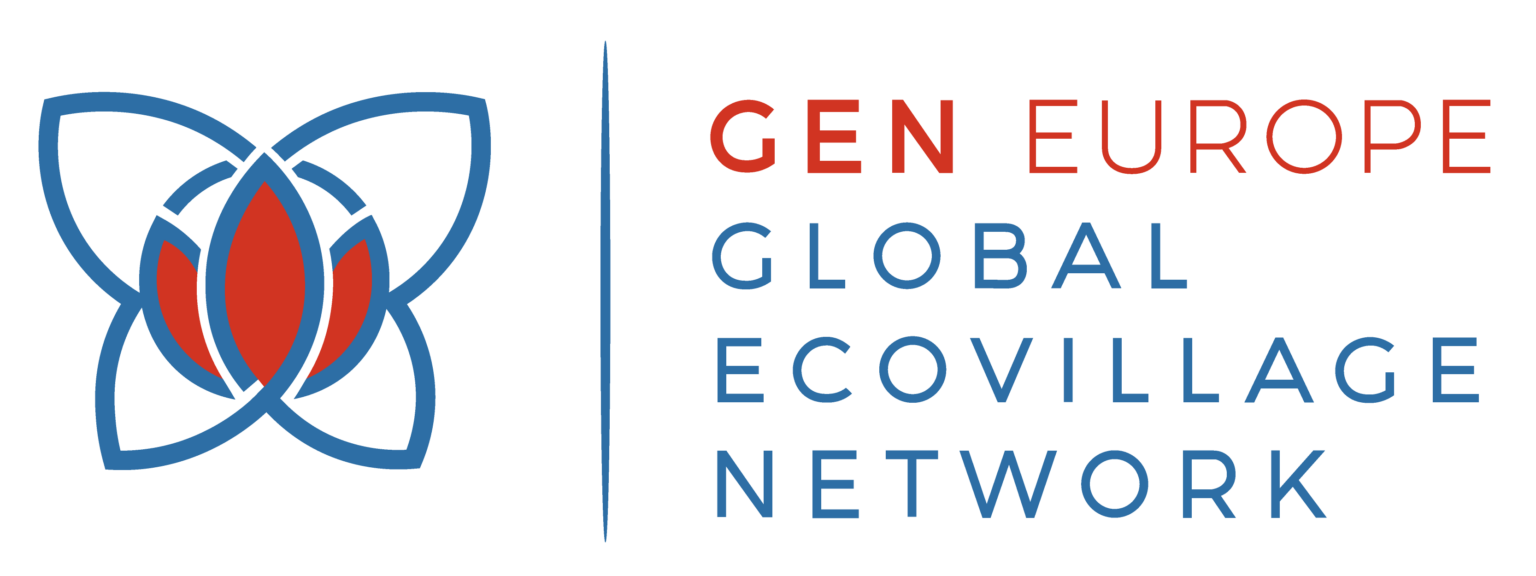Our third journey: Tips on volunteering in a community
Many people interested in community life don’t know where to start. There are so many communities out there and it can be hard to know which one will be the right fit for you (and for the community!). If you want to get to know an ecovillage better and immerse yourself in community life, volunteering is, for many people, the first step: a good opportunity to get a taste of community living without having to commit to something you don’t yet know. For some volunteers, the experience might even become a springboard into further community involvement or also just simply into deeper personal insight into sustainable lifestyles.
That said, volunteering can take many different forms: from short-term experiences to long-term stays, from hands-on building projects to more social, cultural or administrative support. Whatever form it takes, volunteering offers a rich exchange in which you bring your time, energy and skills, and in return, you receive learning, connection and a deeper understanding of what it means to live and work together for a regenerative future.
To make the most of it, here are some tips from the GEN Europe network to help you have a meaningful, respectful and mutually enriching experience.
Basic Tips for a Meaningful Volunteering Experience
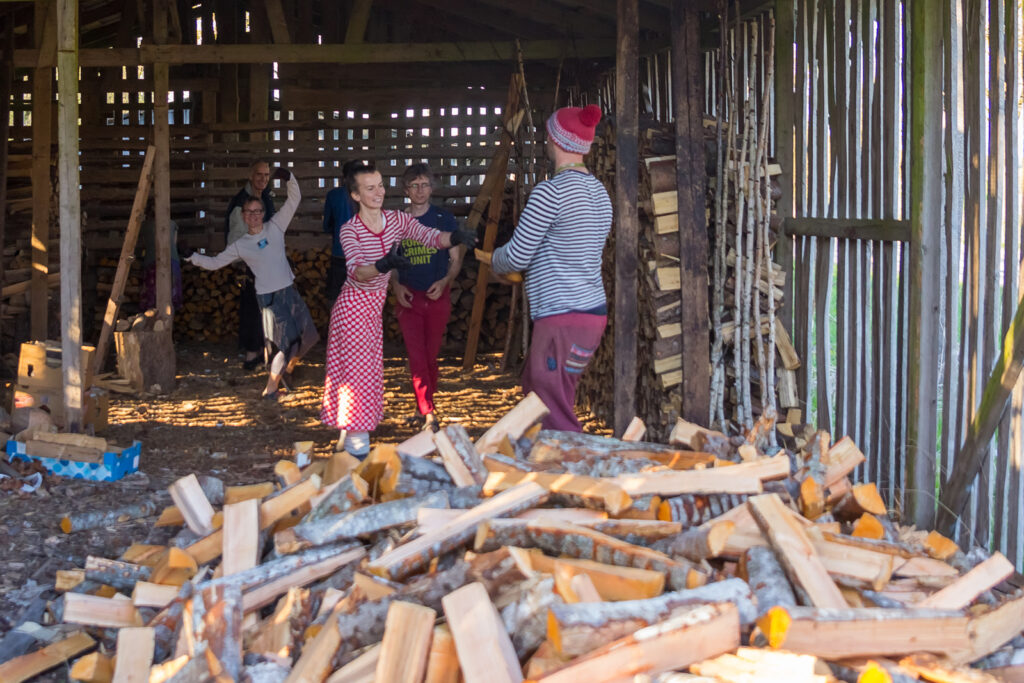
- Investigate the community
Take time to learn about the ecovillage: its values, daily practices, governance, main areas of activity. At GEN Europe we encourage you to explore our map of ecovillage members to get to know our network. Also, you can check out the member interviews in the members area to get a better glimpse into the atmosphere of the community of your interest. - Clarify expectations in advance
What is the length of stay? What tasks will you do? What is offered in exchange (food, accommodation, learning, community participation)? Clear communication helps avoid misunderstandings. - Be flexible and open-minded
Community life often runs differently than solo travel. Shared living spaces, collective decisions, shifting priorities, seasonal work and much more may await you. Embrace curiosity, not resistance. - Bring your skills and your humility
Whether you’re skilled in gardening, communications, cooking or construction: offer your ability generously. At the same time stay open to learning the community’s way of doing things and be ready to step into tasks you might not originally have planned for. - Engage beyond the work
Volunteering isn’t just about completing tasks. It’s also about being part of the social, cultural and relational fabric of the community. Attend shared meals, discussions, rituals or celebrations. Listen, observe and join in. - Look after yourself
Shared life and hands-on work can be deeply rewarding but also intense. Make sure you rest, reflect and maintain your well-being. Communities value volunteers who bring balanced energy. - Reflect on what you’ve learned
Before you depart (or shortly after) take time to reflect: What surprised you? What did you learn about community living, about yourself? What new questions or possibilities opened up? Some communities also welcome volunteers’ feedback and reflections.
Continue reading the introduction about volunteering in this article from GEN Europe:
Different Volunteering Options
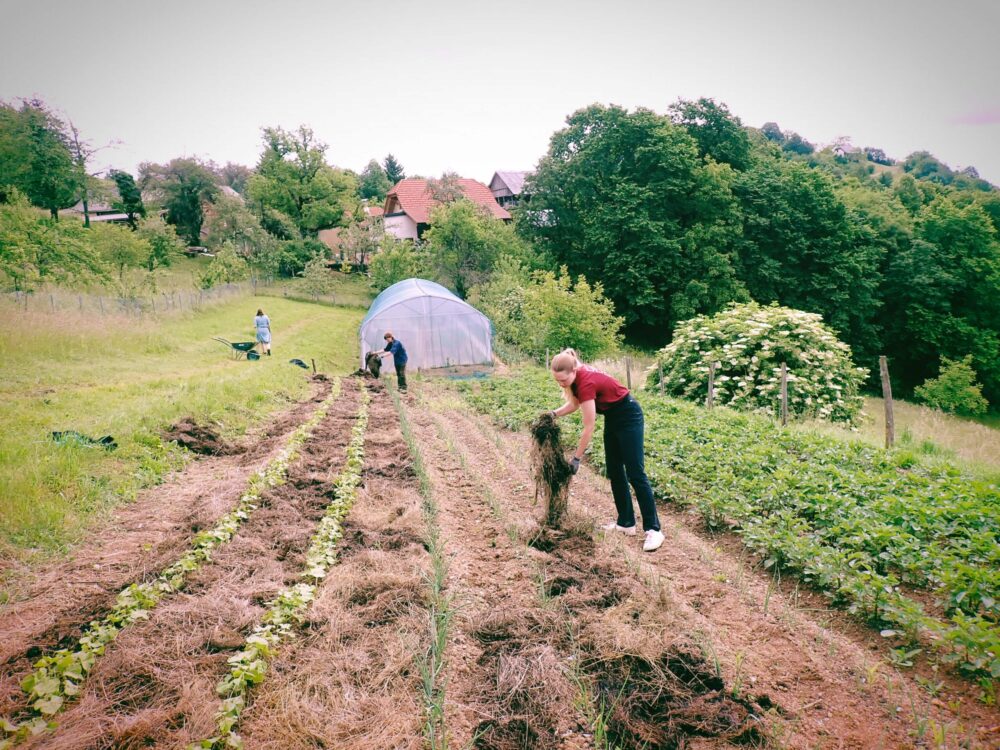
Volunteering can take various shapes. Here are some of the main pathways within the GEN Europe network, including what’s available to you.
Short-term / work-exchange stays
Many ecovillages host volunteers for shorter stays (a few weeks to a couple of months) as part of a work-exchange: you offer labour in exchange for food & accommodation. This could involve tasks like gardening, eco-construction, kitchen help or general community support. If you are interested in that, it’s best to check out existing frames at the community of interest or contact them directly.
Experience weeks or immersion programmes
Some communities (such as Schloss Galrisegg or Arterra Bizimodu) offer “experience weeks” or similar short immersion formats, ideal for exploring whether community-life is for you without long-term commitment. You can keep updated with upcoming options in our newsletter or by researching the community of your interest.
Short- or Long-term funded volunteering (European Solidarity Corps / ESC)
If you are aged 18-30 and resident in the EU (or certain partner countries), the European Solidarity Corps offers fully funded volunteering and traineeships. In the GEN Europe network some ecovillages host ESC volunteers on assignments of several months (short-term or long-term).
➡️Explore these GEN Europe articles for more information
How to Find Volunteering Opportunities in Ecovillages
Here’s how you can keep track of and apply for volunteering options within the European ecovillage movement:
- Sign up for the GEN Europe newsletter — We regularly share new volunteering opportunities every quarter (or more frequently) via our mailing list.
- Follow our website and other social media channels — Recurring ESC opportunities are published via this website. You can find other opportunities (also Youth Exchanges or Training Courses) by following the Yes to Sustainability network or this Instagram channel that regularly posts current possibilities.
- Join the NextGEN Europe Sharing Circle — As the youth branch of GEN Europe, NextGEN hosts monthly calls as well as a WhatsApp sharing circle group where volunteering and project opportunities are circulated. If you are interested, write an email to ngen.europe@ecovillage.org.
- Explore the Ecovillage Map and contact communities directly — On the GEN Europe site you can explore the ecovillage directory and map, and contact communities to ask about open volunteer slots.
- Set up alerts and check portals — For ESC-funded placements, you can check the European Youth Portal and other youth mobility platforms, such as SALTO to spot calls where GEN Europe and ecovillages are listed.
Further Resources
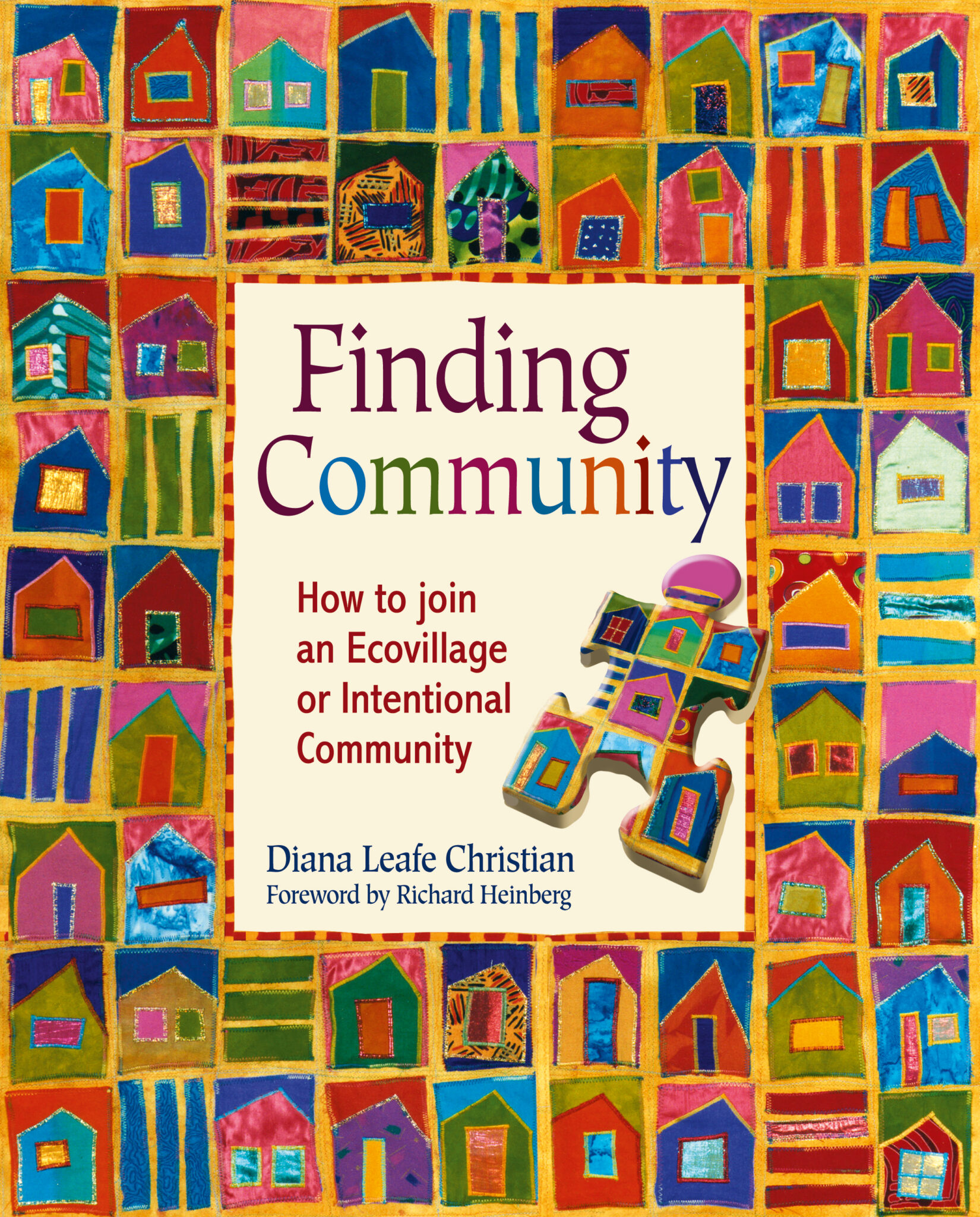
Finding Community
by Diana Leafe Christian
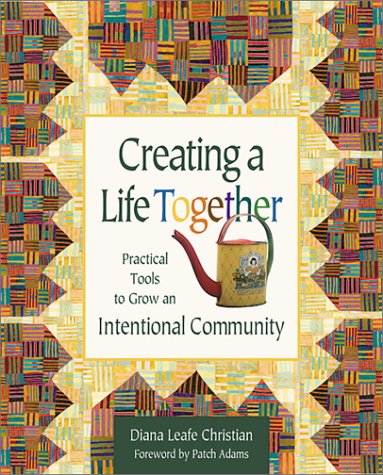
Creating Life Together
by Diana Leafe Christian
